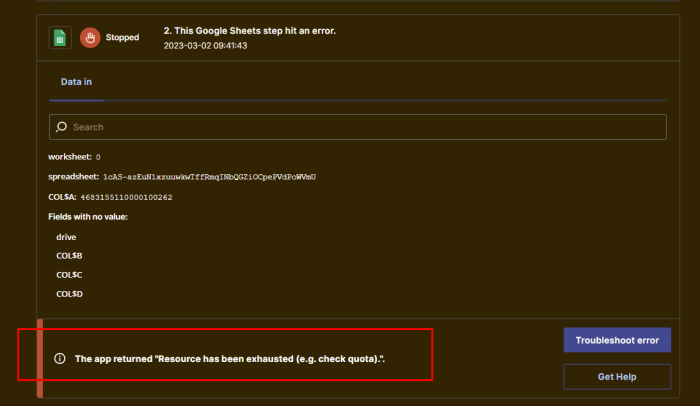Maximize Efficiency with Cloud-Based ERP Systems: A Guide for Modern Businesses offers a comprehensive overview of the advantages of using cloud-based ERP systems. Learn how cloud ERP streamlines operations, reduces costs, and enhances collaboration. Case studies demonstrate the positive impact of cloud ERP on businesses, guiding you through the process of selecting the right cloud ERP vendor and solution.
Understanding the Benefits of Cloud-Based ERP Systems
Cloud-based ERP systems have gained immense popularity among modern businesses due to their numerous advantages. These systems offer a comprehensive suite of integrated applications that streamline operations, reduce costs, and enhance collaboration, ultimately driving business success.Cloud ERP systems eliminate the need for on-premises infrastructure, reducing hardware and maintenance costs.
They provide real-time data access from any location with an internet connection, fostering collaboration and enabling faster decision-making. Additionally, cloud ERP systems offer scalability and flexibility, allowing businesses to adapt to changing market demands and growth.
Case Studies
* Case Study 1:A manufacturing company implemented a cloud ERP system and experienced a 20% reduction in production time and a 15% increase in efficiency.
Case Study 2
A retail chain deployed a cloud ERP system and achieved a 30% improvement in customer satisfaction and a 10% increase in sales.
Evaluating Cloud ERP Vendors and Solutions: Maximize Efficiency With Cloud-Based ERP Systems: A Guide For Modern Businesses
Selecting the right cloud ERP vendor and solution is crucial for businesses seeking to maximize efficiency and achieve their goals. It’s essential to evaluate vendors and solutions carefully, considering factors such as industry expertise, scalability, and integration capabilities.
When evaluating vendors, consider their experience and expertise in your specific industry. This ensures they understand your business challenges and can provide tailored solutions. Scalability is another key factor, as your business grows, the ERP system should be able to accommodate increased data volumes and users without compromising performance.
Integration Capabilities
Integration capabilities are vital for connecting the ERP system with other business applications, such as CRM, supply chain management, and e-commerce platforms. Seamless integration streamlines data flow and eliminates manual processes, enhancing efficiency and reducing errors.
Maximize Efficiency with Cloud-Based ERP Systems: A Guide for Modern Businesses provides valuable insights into the transformative power of cloud-based ERP solutions. For those seeking an even deeper dive, we highly recommend exploring Unlock the Power of Dynamics 365 ERP for Seamless Business Success , which offers a comprehensive guide to the capabilities of this leading ERP platform.
By integrating Dynamics 365 ERP into your business operations, you can streamline processes, enhance collaboration, and drive operational excellence. Return to Maximize Efficiency with Cloud-Based ERP Systems: A Guide for Modern Businesses for further guidance on leveraging the transformative potential of cloud-based ERP solutions.
Implementing a Cloud ERP System

Implementing a cloud ERP system is a multi-faceted endeavor that requires careful planning and execution. By following best practices and adhering to a structured approach, businesses can ensure a smooth and successful implementation that maximizes the benefits of their new system.
Maximize Efficiency with Cloud-Based ERP Systems: A Guide for Modern Businesses dives into the transformative power of ERP systems for businesses of all sizes. While small businesses may have unique needs, Unlock Growth with ERP for Small Businesses: The Ultimate Guide provides tailored insights for unlocking growth.
This comprehensive guide complements our exploration of cloud-based ERP systems by highlighting the specific advantages and strategies for small businesses to leverage this technology for enhanced efficiency and growth.
The implementation process typically involves several key steps, each of which plays a crucial role in the overall success of the project.
Project Planning
Thorough project planning is essential for laying the foundation for a successful implementation. This involves defining clear project goals, identifying stakeholders, establishing a timeline, and allocating resources. A well-defined project plan helps ensure that all parties involved are aligned on expectations and that the implementation proceeds efficiently.
Data Migration, Maximize Efficiency with Cloud-Based ERP Systems: A Guide for Modern Businesses
Migrating data from existing systems to the new cloud ERP system is a critical step that requires careful planning and execution. Data integrity and accuracy are paramount, as any errors or omissions can impact the reliability and effectiveness of the new system.
Businesses should work closely with their implementation partner to develop a comprehensive data migration strategy that ensures a seamless transfer of data.
User Training
Adequate user training is essential for ensuring that employees are equipped to use the new cloud ERP system effectively. Training should be tailored to the specific roles and responsibilities of each user and should cover all aspects of the system’s functionality.
Maximize Efficiency with Cloud-Based ERP Systems: A Guide for Modern Businesses provides valuable insights into implementing ERP systems effectively. To ensure successful implementation, consider the comprehensive guidance offered in How to ERP: A Comprehensive Guide to Successful Implementation. This guide delves into key aspects of ERP implementation, maximizing the benefits of cloud-based systems for modern businesses.
Comprehensive training programs help users quickly become proficient in using the system, maximizing its benefits and minimizing disruption to daily operations.
Maximizing Data Security and Compliance

Cloud ERP systems provide robust security measures to protect sensitive business data. These measures include encryption, access controls, and regular security audits. By leveraging cloud-based security infrastructure, businesses can enhance their data protection capabilities and reduce the risk of data breaches.
Furthermore, cloud ERP systems assist businesses in complying with industry regulations and data privacy laws. They offer built-in compliance features that align with industry standards, such as HIPAA, GDPR, and ISO 27001. This simplifies the compliance process, ensuring that businesses meet their regulatory obligations and safeguard sensitive data.
Maintaining Data Integrity and Preventing Unauthorized Access
- Implement strong password policies and enforce regular password changes.
- Enable multi-factor authentication to add an extra layer of security.
- Establish clear user roles and permissions to restrict access to sensitive data.
- Monitor system activity and audit logs to detect any suspicious activities.
- Regularly back up data to a secure off-site location for disaster recovery purposes.
Summary

Implementing a cloud ERP system involves project planning, data migration, and user training. Cloud ERP systems provide security measures and help businesses comply with industry regulations and data privacy laws. They facilitate collaboration among different departments and teams, enhancing information sharing and decision-making.
Integrating cloud ERP systems with other business applications enables seamless data exchange and automated workflows. Measuring the ROI of cloud ERP investments involves tracking key metrics such as cost savings and increased productivity. Best practices for cloud ERP optimization include data management, process automation, and user adoption.
Emerging trends in cloud ERP technology include artificial intelligence, machine learning, and the Internet of Things (IoT), shaping the future of ERP systems.
Question & Answer Hub
What are the benefits of using cloud-based ERP systems?
Cloud-based ERP systems offer numerous benefits, including streamlined operations, reduced costs, enhanced collaboration, improved data security, increased compliance, and better decision-making.
How do I choose the right cloud ERP vendor and solution?
Consider factors such as industry expertise, scalability, integration capabilities, cost, and customer support when selecting a cloud ERP vendor and solution.
What are the key steps involved in implementing a cloud ERP system?
Implementing a cloud ERP system involves project planning, data migration, user training, and ongoing maintenance.
How can I measure the ROI of my cloud ERP investment?
Track key metrics such as cost savings, increased productivity, improved customer satisfaction, and reduced risk to measure the ROI of your cloud ERP investment.





